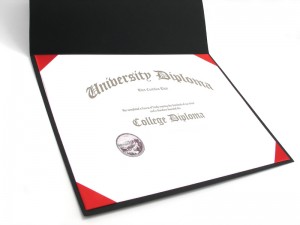Here’s a current comprehensive list of my picks for college info websites. Do you have any additional suggestions?
COLLEGE BLOGS
ParentingforCollege.com–You will find the MOST information ere olege news. Come here first to find the latest and bhest tools to hn our blog: college guidance, college planning, college coaching, and colelp you navigate the college maze.
TheCollegeSolutionBlog.com–An excellent resource for college-bound teens and their parents: admissions, testing, and financial aid.
UniversityLanguage.com/blog–Great blog articles about everything related to college admissions geared toward students.
GreatCollegeAdvice.com/blog–An excellent resource about the college admissions process providing expert advice helping students map their college journey.
USNews.com/Education–The education channel of U.S. News and World Reports providing the latest news and information related to college.
CollegeBasics.com–An excellent resource for information about college essays, college applications and high school resumes.
InsideHigherEd.com/blogs–Several different blogs related to higher education.
CollegeAdmissionsPartners.com/blog–An expert blog dedicated to helping students find the right college.
CollegeFocus.com/colleges–A virtual clearinghouse of blogs related to college life, parenting, college searches, etc.
Road2College.com–You can find just about any topic related to college prep at this site: financial aid, college planning, student loans, test prep, and more.
PARENT SITES
UniversityParent.com–A site where parents can ask questions, gather information, and download and view college guides and campus newsletters.
CollegeParentCentral.com–A blog created to give parents useful information about college and the college admissions process.
YourCollegeKid.com–A site with parent forums and other college prep tools.
CollegiateParent.com-A site dedicated to providing parents with information for their college students.
FINANCIAL AID
Fafsa.ed.gov–The official government website for the Free Application for Federal Student Aid.
SallieMae.com/plan–A FREE education investment planner that will help determine college costs, compare college costs, and provides information about student loan repayments.
SavingForCollege.com–Everything you need to know about financing a college education.
FinAid.org–An excellent resource for the answers to all your questions regarding college financial aid.
CollegeFinancialAidAdvisors.com–Help with the college financial aid process.
SCHOLARSHIPS
Chegg.com–A free service for students and parents where students can showcase themselves, connect with colleges, and search for scholarships.
Cappex.com–The place to go to find merit scholarships and academic scholarships from colleges across the country.
Scholarships.com–An extensive scholarship search engine that helps you search and schedule alerts for deadlines.
How2winscholarships.com–A guide for parents and students on how to effectively apply to and win scholarships.
COLLEGE VISITS
SmartCollegeVisit.com–Created to provide information about college visits, help parents and students plan, and view personal accounts from both parents and students.
CollegeWeekLive.com–A virtual college fair that sponsors free LIVE events with archived presentations, student chats, and college booths.
COLLEGE PLANNING
Cappex.com–A site created for students to help them simplify their college search, create a profile and search for scholarships.
CommonApp.org–The common application site used by 400 colleges and universities across the country.
PrincetonReview.com–The best value colleges list for public and private institutions across the country.
UPromise.com–UPromise partners return a portion of eligible purchase money back to you. Those earnings accumulate in your Upromise account until you decide to use it to invest in a 529 plan, help pay down eligible student loans or assist with college expenses—all tax-free!
CollegeBoard.com–It’s here you’ll find the CSS Profile application (required by many private colleges), register for the SAT, and read articles about planning for college.
CollegeXpress.com–A search site that groups colleges in categories and provides college “hot” lists (i.e. top college for late bloomers, colleges for students needing a second chance)
VolunteerMatch.org–Find local volunteer opportunities for your college-bound teen and teach them about the importance of giving back to their community with the added bonus of adding that service to their high school resume.
KnowHow2Go.com–A college planning site for college-bound students providing helps and aids from middle school to senior year: interactive and fun!
BigFuture.collegeboard.org–A planning tool to help parents and students get ready for college.
TEST PREP / TUTORING
TutorsForTestPrep.com–An SAT expert and coach offering tips to help your college-bound teen improve their SAT/ACT scores.
FairTest.org–The site for the National Center for fair and open testing providing information about colleges who do not use the SAT/ACT for admissions decisions.
QuincyTutoring.com–A resource to find a tutor and schedule a tutoring session.
LaunchpadEducation.com–Tutoring to help students with learning disabilities and ADHD.
TEXTBOOKS
ECampus.com—Find textbooks, sell textbooks, search for college supplies and college apparel all on this one site.
Chegg.com–A hub for students to compare textbook prices, study for exams, and choose the right courses.
RECRUITING
NCSASports.org–The college recruiting site for athletes.
BeRecruited.com–If you have a teen that’s a student athlete, they can create an online profile here and help colleges and coaches find them and be recruited.











